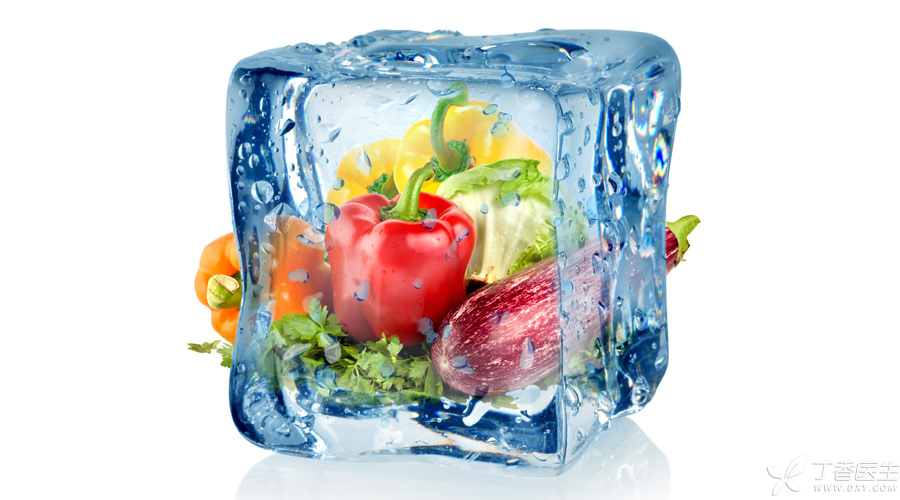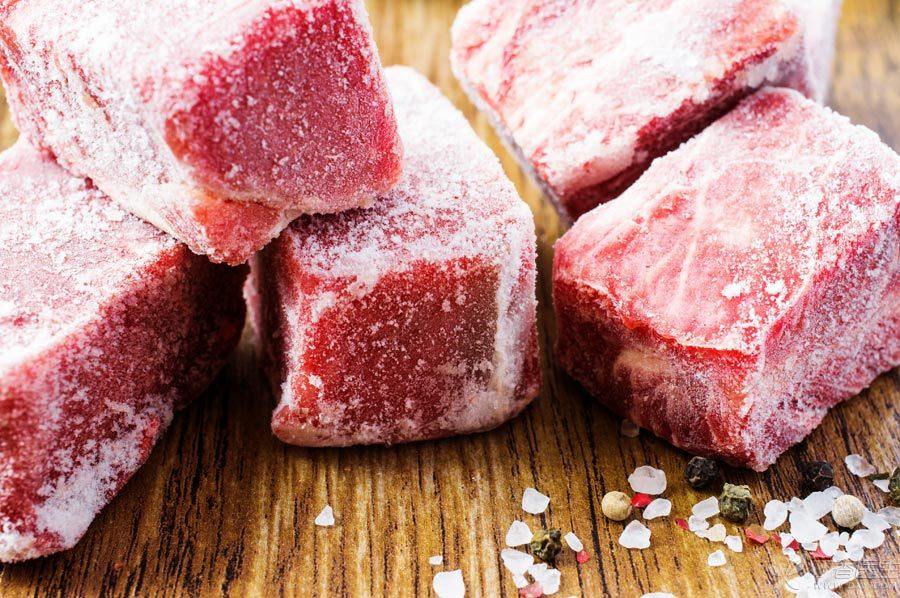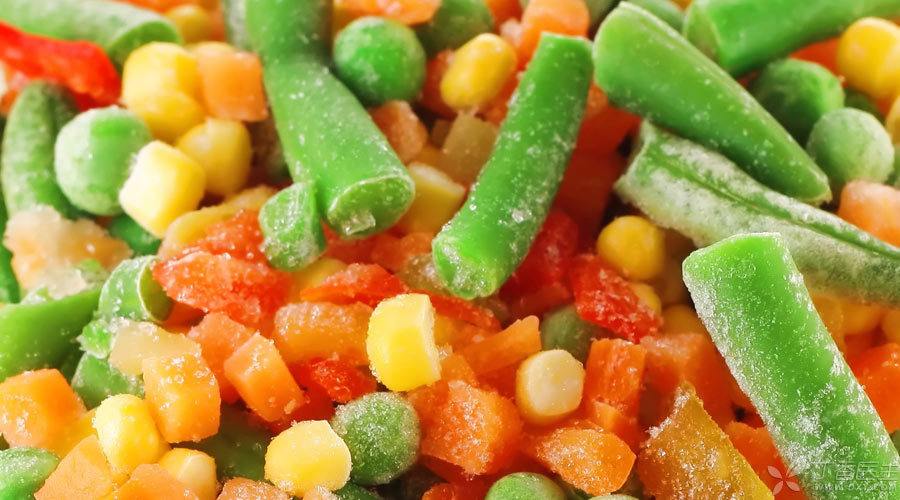
After a busy day, I came home from work and didn’t want to open fire and cook any more.
During the holiday, I stayed at home, didn’t want to go out to eat, and worried about the unhygienic takeout.
It is not convenient to buy vegetables, why don’t you buy more in the refrigerator?
At these times, quick-frozen food may be your good friend. You can choose from all kinds of quick-frozen dumplings, steamed buns, snacks, fish, meat, shrimps, and quick-frozen fruits and vegetables that have sprung up in recent years.
However, in addition to satisfying convenience and mouth desire, many people are beginning to worry about whether frozen food is not nutritious. Can you eat with such a long shelf life?
Quick frozen food, the key is [fast]
Quick-frozen food is not just as simple as freezing food.
If the dumplings made by our own family are put into the refrigerator for freezing, because the temperature drops slowly, the water in the food will form [ice crystals]. As the temperature drops, such [ice crystals] will become larger and larger, which will easily destroy the cellular structure of the food, thus causing the taste of the food to deteriorate.
However, [quick-frozen food] adopts a relatively unique freezing process. Compared with the general freezing process, it can quickly reduce the temperature of food to far below the freezing point of water (usually at minus 18 ℃).
Due to the rapid cooling speed, the water in the food will enter a [supercooled] state, and the [ice crystals] formed at this time are very small, so small that they will not seriously damage food cells and can retain the original taste and flavor of the food to the greatest extent.
Moreover, due to low temperature, cell activity has basically stopped and microbial activity has been greatly limited, so quick-frozen food can usually be stored for a long time.
Frozen food, nutrition is not bad
Although there are many kinds of frozen foods in supermarkets, all kinds of dumplings, snacks, meatballs… occupy several rows of freezers, but from the perspective of raw materials, they can be roughly divided into frozen animal foods and plant foods, which is what we often call frozen meat and frozen vegetables and fruits.
Step 1 Frozen Meat

Meat mainly provides protein and minerals. Under extremely low temperature conditions, the protein and mineral machinery will not change.
Therefore, the nutritional value of frozen meat is no lower than that of fresh meat.
However, in terms of taste, frozen meat is indeed slightly worse. Because if frozen for a long time, the meat will gradually lose water and the taste will not be so tender.
Step 2 Frozen fruits and vegetables
In addition to the traditional staple foods of frozen meat, frozen dumplings and steamed buns, frozen vegetables are not uncommon in supermarkets now…
From classic frozen green beans, carrots and corn to frozen broccoli, asparagus and green vegetables, the varieties are becoming more and more abundant, meeting the needs of the vast number of homesteads.

In line with the concept of [fresh] [natural] supremacy, the vast majority of people will think that frozen fruits and vegetables are not as nutritious as fresh ones.
But this is actually a misunderstanding.
When fruits and vegetables are picked, they are still carrying out biochemical activities such as respiration. Before entering supermarkets and farmers’ markets, they have to go through transportation, storage and other processes, and finally reach consumers’ homes. They often have to travel a long distance. Nutrition loss is inevitable.
Frozen fruits and vegetables are quickly frozen at minus 18 ℃ when they are picked. At this temperature, the respiration of fruits and vegetables is almost stagnant, microorganisms cannot grow and reproduce, and in theory it is even more conducive to the retention of nutrients.
Therefore, regardless of taste, frozen fruits and vegetables will not be less nutritious than fresh fruits and vegetables you buy in food markets and supermarkets.
Even, many studies have found that quick-frozen fruits and vegetables have their own advantages in nutrition:
The survey results of the U.S. Department of Agriculture show that there is no obvious difference in nutrient content between frozen fruits and vegetables and fresh fruits and vegetables as a whole. Even in some cases, the preservation rate of vitamin C, B vitamins and carotenoids in frozen fruits and vegetables is higher. Scientists at Sheffield Harlem University in England studied 37 kinds of products and found that there was not much nutritional difference between fresh food and frozen food.
For this reason, international health organizations, including the US Food and Drug Administration (FDA) and the British Dietitian Association (BNF), all believe that:
There is not much difference in nutritional value between frozen food and fresh food, and they can also be used as part of healthy diet.
Legend has it that frozen foods have a lot of fat and salt?
Although the nutrition of quick-frozen food is no different from that of ordinary food, there are rumors that quick-frozen food will add a lot of fat and salt.
Indeed, some quick-frozen foods, especially quick-frozen meatballs, dumplings and snacks, often have more fat and salt for good taste, and eating more may not be good.
However, this is not a problem for frozen food. In fact, in order to taste delicious, almost all food enterprises will have more oil and salt when processing food, especially in restaurants that eat at ordinary times. Many people also like more oil and salt when cooking at home.
If you are worried about oil and salt, the canteen manager will give you three tips:
-
When selecting frozen food, carefully look at the food labels and try to select products with less fat and salt.
-
Knowing that it is rich in oil and salt, try to eat less.
-
Pay attention to the matching of meat and vegetables. If you could have eaten a bag of frozen dumplings, you might as well replace it with half a bag of dumplings and add some hot vegetables.
